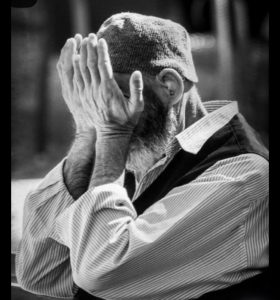THE IMPORTANCE OF A FATHER IN ISLAM
In Islam, the role of a father is one of honor, leadership, responsibility, and mercy. While much emphasis is rightly placed on the status of the mother, the Qur’an and Sunnah also highlight the great value and responsibility of the father in the home. A father is not just a provider of food and shelter he is a guardian of faith, a guide of hearts, and a shepherd of his family.
FATHERHOOD IS A GOD-GIVEN RESPONSIBILITY
The Prophet ﷺ said:
“Every one of you is a shepherd and is responsible for his flock. The man is the shepherd of his family and is responsible for them.”
Bukhari
A father is the ameer (leader) of the home. His duty is not just to earn a living but to shape the spiritual, emotional, and moral foundation of his family. His leadership is not about control but accountability before Allah.
THE FATHER AS A PROVIDER OF HALAL
Providing for the family is not just a cultural expectation it is an act of worship in Islam. The Prophet ﷺ said:
“A man’s spending on his family is a deed of charity.”
Bukhari & Muslim
But Islam also teaches that provision must be halal and pure, for a home built on haram income loses barakah. A father who strives for halal sustenance is building a life of blessings for his children.
THE FATHER AS A TEACHER OF DEEN
The first school of a child is not a classroom it is the father’s character. Children watch more than they listen. A father who prays teaches prayer. A father who fears Allah raises a child who fears sin. Allah tells us about the advice of a father to his son:
“O my dear son, do not associate others with Allah.”
Surah Luqman (31:13)
Luqman’s advice reflects a truth: Every father must guide his children toward Allah with wisdom, love, and patience.
THE FATHER AS A MAN OF MERCY
A father’s strength does not lie in harshness. Islam encourages gentleness and mercy. The Prophet ﷺ, the best of all men, was kind and affectionate toward children. He kissed his grandchildren and played with them. When a man once said he never shows affection to his children, the Prophet ﷺ replied:
“Whoever does not show mercy will not be shown mercy.”
Tirmidhi
Mercy is not weakness. It is strength of character.
THE FATHER AS A ROLE MODEL
A father teaches integrity by being honest.
He teaches sabr by staying calm in difficulty.
He teaches respect by honoring the mother.
He teaches taqwa by fearing Allah in private and public.
His legacy lives not in wealth but in the hearts he shapes.
The Prophet ﷺ said:
“When a person dies, his deeds come to an end except three… a righteous child who prays for him.”
Muslim
A righteous child is a father’s greatest success in this life and the next.
WHEN FATHERS ARE ABSENT
When fathers neglect their role, families suffer. The home loses discipline, children lose direction, and society loses stability. Islam warns against abandoning responsibility:
“It is sufficient sin for a man that he neglects those whom he is responsible for.” Abu Dawood
A true father does not disappear he leads, protects, and supports.
A MESSAGE TO FATHERS
Your children don’t just need you to pay bills they need your time, wisdom, prayers, and love. Your presence is a blessing. Your guidance is priceless. Your dua is a shield over your family.
Be the father who:
Raises children who love Allah.
Leaves a legacy of faith.
Teaches by example.
Leads with justice and mercy.
CONCLUSION
In Islam, the father is more than a figure in the household he is a pillar of faith, a path to Jannah, and a guardian of generations. His role is honored, his responsibility is heavy, and his reward is great if he fulfills his duty with sincerity and righteousness.
To every father who works in silence, sacrifices with patience, and leads with love Islam honors you.


